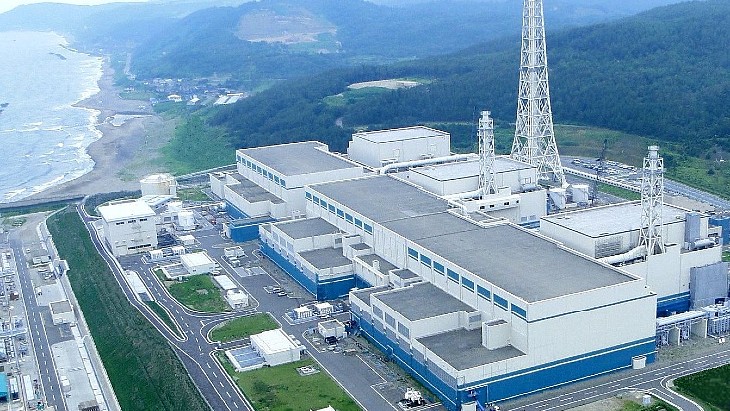"Today, after these tragic events, our country is going through a difficult time," Kazatomprom said, adding that it plans to actively support restoration efforts in the regions where it operates. "We sincerely appreciate the support we have seen from our stakeholders during this very worrisome period. We are particularly grateful to our committed workforce, whose efforts to monitor and mitigate the related risks prevented any significant impact on the company and its operations."
Kazakhstan President Kassym-Jomart Tokayev has assured citizens and businesses that the government will meet its obligations and take all necessary measures to restore the trust of domestic and foreign investors, the company noted. "This assurance is important for the global nuclear industry, as the majority of Kazatomprom's uranium assets are operated in partnership with major international nuclear industry participants. Kazatomprom has always managed to meet customer expectations, and we have again proven ourselves to be a secure and reliable supplier despite operating in a jurisdiction of higher perceived geopolitical risk," it said.
All Kazatomprom's assets operated without interruption, and the company said this was thanks to the implementation of lessons learned throughout the pandemic. "Kazatomprom's risk management and business continuity plans proved to be robust, with no delays or disruptions to the company's uranium production, deliveries or sales plans," it said.
The unrest in Kazakhstan began on 2 January in the town of Zhanaozen before spreading to major centres, leading to the declaration of a countrywide state of emergency with curfews and a ban on gatherings. The state of emergency has now been lifted in the West, North and Pavlodar regions and a state of critical terrorist threat has been lifted countrywide, except for the city of Almaty, Zhambyl and Almaty regions, where it is expected to remain in effect until 19 January. Internet, telecommunications and the financial services sector have now returned to normal.
The withdrawal of regional Collective Security Treaty Organisation (CSTO) forces - brought in to assist with the anti-terrorist operation - is expected to be completed in the coming week. "At no point were CSTO forces deployed to the vicinity of Kazatomprom's infrastructure or operations," the company said.
The Kazakh government resigned on 5 January and a new government has been appointed, with Alikhan Smailov becoming the new prime minister. Bolat Akchulakov has been appointed as minister of energy and will resign from Kazatomprom's board of directors, on which he had represented the interests of its majority shareholder, the Samruk-Kazyna sovereign wealth fund. Earlier this week, President Tokayev instructed the Kazakh government to carry out an investigation of the efficiency, and potential reform of, Samruk-Kazyna as part of efforts to drive economic growth.
COVID threat remains
"Although the more serious near-term supply chain risks specifically related to recent events did not materialise, the pandemic-related supply chain challenges remain a concern, and may impact both production and cost expectations in 2022," Kazatomprom said. Further updates will be provided when 2021 full-year financial results are released in March, it added.
With cases of the Omicron variant continuing to rise, Kazatomprom said it has reinforced existing protocols to minimise the spread of COVID-19 by introducing PCR testing for anyone accessing the mine sites. Site administrative personnel are also now working remotely.
"Kazatomprom's focus remains on business continuity, including the safety and security of its employees and operations," the company said, adding that it will not at this time speculate on "the potential impact of the underlying social circumstances or related geopolitical implications" of the civil unrest.

_1.jpg)




_91467.jpg)
_47120.jpg)
_16439.jpg)





